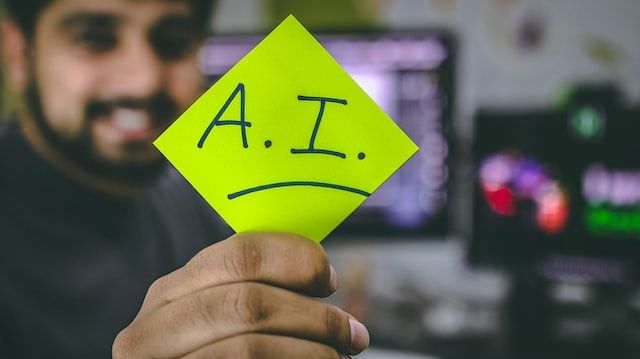
Can AI Detect Cancers That Doctors Miss?
Artificial intelligence (AI) continues to find its way into more aspects of our lives. AI has exciting applications in numerous sectors, including manufacturing, education, commerce, and transportation.
AI technology also holds promise in medicine, particularly in cancer detection. AI advancements have been shown to improve screenings by helping spot the early signs that doctors might overlook. This article discusses the use of AI in medicine and its application in screenings for various types of cancers.
AI and Cancer Detection
Artificial intelligence refers to algorithms or computer programs that use data to carry out actions or make decisions that imitate human intelligence. Generating an AI algorithm requires creating rules that dictate how a computer analyzes data and makes decisions.
To detect cancer cells, doctors use various imaging methods and tools, from x-rays to microscopic images of cancer cells. Scanning is essential for finding cancer in its early stages, determining the proper treatment, and checking whether the cancer has returned.
Researchers have applied AI by using data from thousands of MRI and other scans to teach a computer how to search images to spot cancer cells. AI can also help doctors differentiate cancer cells from benign masses, aid in diagnoses, and determine how fast the cancer is growing.
Furthermore, AI tools speed up the imaging process, make it possible to identify cancer cells earlier, and produce more accurate results. Medicine is not an exact science, and some physicians and diagnosticians miss early signs of cancer. AI technology can pick up early indicators that otherwise fall through the cracks.
Breast Cancer
Doctors have used AI technology for over two decades to detect lesions and cancer cells from mammograms. Recently, breast cancer screening (BCS) research has examined the use of AI deep learning to enhance detection. Deep learning teaches machines to work like circuits in the human brain to make decisions on what they learn from large data sets.
A team of scientists has developed an algorithm that determines the type of BCS a person should get based on mammogram images. The AI model predicts a person’s risk of breast cancer within the next five years. It was found to be more accurate than any current tools that indicate risk.
The U.S. Food and Drug Administration (FDA) has approved several AI-assisted products that help detect breast cancer. Most of these devices used tissue biopsy data to assess accuracy in detection.
Lung Cancer
There have been significant developments in the use of AI in detecting lung cancer. Like other forms of cancer, lung cancer is detected through imaging, which can be tedious to examine. AI can assist in the interpretation of chest images to detect cancer earlier and more effectively.
Lung nodules are abnormal growths that form in the lungs. They are early warning signs of cancer and typically originate from previous lung infections. A common technique for identifying nodules involves the use of chest x-rays. With AI assistance, however, the detection rate for nodules on x-rays tends to be higher than with no AI.
Lung cancer cells can also show up on CT scans. Unfortunately, many non-cancerous cells can look like cancer on CT scans, resulting in false-positive interpretations. To solve this problem, researchers are developing a form of deep learning AI to reduce the number of false-positive results from CT scans.
Ovarian Cancer
Researchers at Memorial Sloan Kettering Cancer Center have developed AI technology to “sniff out” ovarian cancer in the same way a dog uses its nose. The technology consists of carbon nanotubes that act as sensors giving off light that interacts with molecules. One sensor is 100,000 times narrower than a strand of human hair. Using blood samples from patients with ovarian cancer, the researchers have found that carbon nanotubes are more accurate in cancer detection than the biomarker tests that doctors traditionally use to detect cancer-related proteins.
Future Implications for AI Technology
AI has shown promise in improving the early detection of several types of cancer. Early detection reduces the need for aggressive and harmful treatments, saves more lives, and lowers healthcare costs overall. Also, with greater detection accuracy, doctors can gather more information from diagnostic scans and images, provide more precise prognoses, and offer more treatment options in some cases.
Despite its sophistication and potential, there is still a lot we do not know about the use of AI and its impact on diagnostic medicine. AI applications require continued research and clinical testing to ensure their utility and accuracy. As AI-assisted screening becomes more widespread, regulatory standards from the FDA and other regulatory agencies will need to keep up with the burgeoning technologies to confirm their safety.
Research and materials for this article were compiled, written, and distributed on behalf of the National Public Health Information Coalition. The views and opinions expressed in this blog are those of the various authors and do not necessarily reflect the official policy or position of the National Public Health Information Coalition or its members.
References
https://www.healthline.com/health-news/can-artificial-intelligence-help-detect-lung-cancer
https://www.cancer.gov/news-events/cancer-currents-blog/2022/artificial-intelligence-cancer-imaging
https://pubmed.ncbi.nlm.nih.gov/33504648/
https://jamanetwork.com/journals/jamainternalmedicine/article-abstract/2797770
https://pubs.rsna.org/doi/10.1148/radiol.221894
https://www.mskcc.org/news/sensor-sniffs-cancer-using-artificial-intelligence

